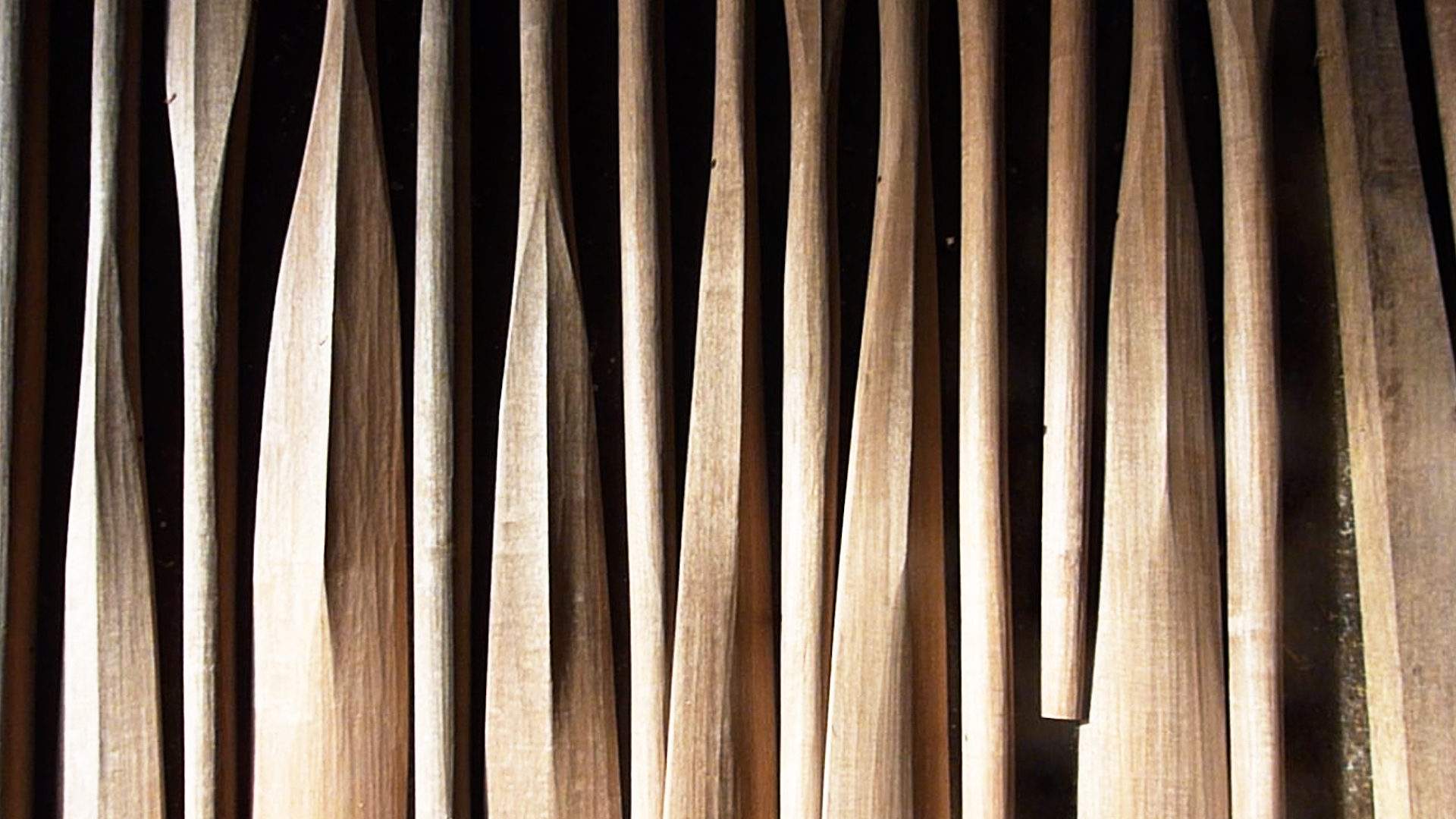Carving Water, Painting Voice
A collaborative exhibition exploring human migration and identity.
In partnership with
Overview
A collaborative exhibition will be on show at NZ Maritime Museum until March 2019. First appearing at Sculpture on the Gulf on Waiheke Island in 2017, Kazu Nakagawa's installation Carving Water, Painting Voice merges sculpture, music, poetry and topology.
Conceived by Kazu Nakagawa and featuring sonic composition by Helen Bowater, Carving Water, Painting Voice explores the themes of human migration and identity, "our journeys carve water, our languages paint voices".
The sculpture, a remodelled wooden Niuean outrigger and 18 carved paddles, is accompanied by a rich soundscape created by Helen Bowater. Visitors can listen to the voices of more than 50 migrants, who sing, speak and narrate in their native language.
"I sought to create a sound component from a flow and interplay of sung and spoken voices that has a symbiotic relationship to Kazu's sculpture. It speaks – in the native tongues of migrants– of their myriad emotions, hardships, dislocations and dreams." says Bowater.
Alongside the sculptural artwork, a series of original illustrations or data-maps created by designer Andrew Caldwell will be showcased. Through the analysis of data linked to DNA, navigation, art, food and trade, Caldwell renders the story of migration into topological maps that shed light on our long journey out of Africa and ultimately to Aotearoa.
Themes of voyaging and migration are further explored through a display of poems written by Riemke Ensing and which include a work that considers the making process undertaken by Kazu Nakagawa. Riemke will also be writing some new work especially for the project.
The exhibition will be open 10am–5pm daily.






